An Overview of Healthcare Simulation Best Practices
Important guidance in achieving simulation success
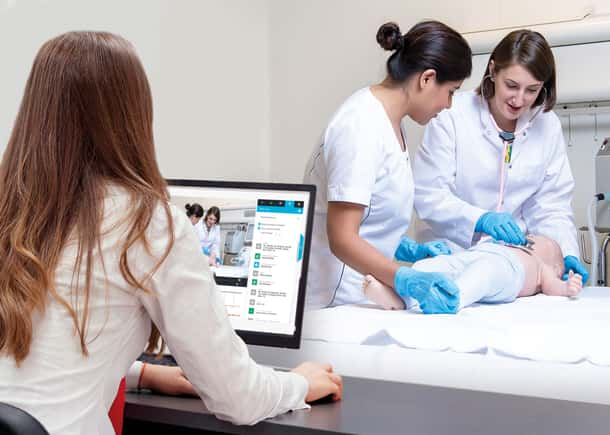
Important guidance in achieving simulation success

Research shows that simulations based on best practices can lead to positive outcomes.1
Below, we outline four sets of simulation standards and guidelines and provide links to help you learn more about each. Whether you’re a new or experienced simulationist, you may benefit from leveraging all or some of these resources to help guide you along the path to maximizing learning outcomes from your simulations.
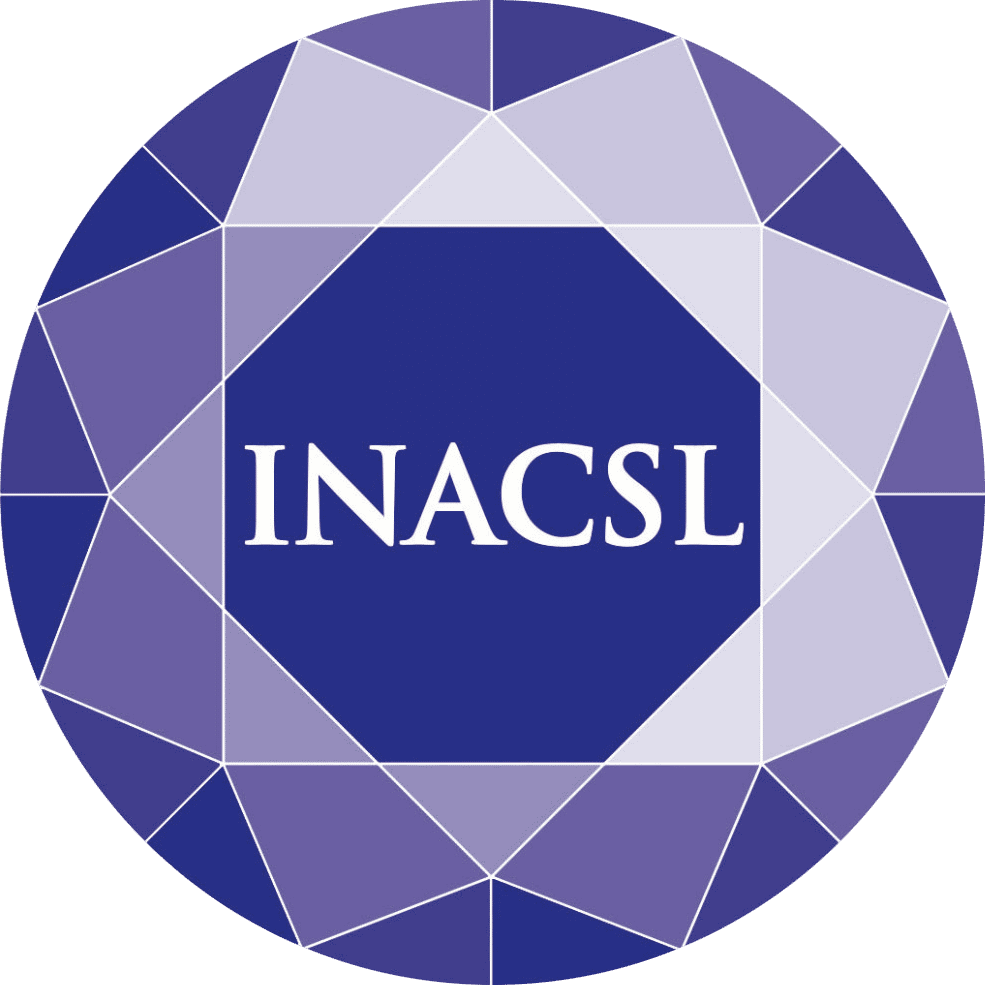
The International Nursing Association for Clinical and Simulation Learning (INACSL) is an association dedicated to advancing the science of healthcare simulation.
Since they were first announced in 2011, INACSL’s Standards have served as a guide for the integration, use, and advancement of simulation-based experiences within academia, clinical practice, and research. The Standards have been revised every few years, with the latest version released in 2021.
The Healthcare Standards of Best Practice provide guidance in these 10 areas:
*INACSL has designated these standards as the “Core Four,” and endorses organizations that excel in these areas.
If you are exploring the Standards and begin to feel overwhelmed, it may reassure you to know that they are intended to serve as a guide. INACSL recognizes and understands that the Standards are aspirational - and that context, resources, accreditation needs, and other factors may affect implementation and attainment.
*Easily-digestible graphic representations of each Standard
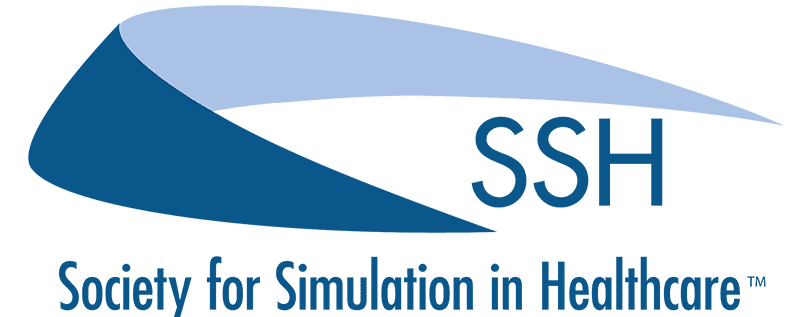
The Society for Simulation in Healthcare (SSH) seeks to improve performance and reduce errors in patient care through the use of simulation.
SSH accredits organizations according to its Standards of Performance, which were developed with all programs – in any setting – in mind. The Standards are not prescriptive but instead describe the desired outcomes and processes that are hallmarks of quality healthcare simulation.
Organizations can receive full or provisional accreditation from SSH if they demonstrate excellence in adhering to the Standards. While you may not be ready to pursue accreditation, you can likely find value in learning more about SSH’s recommendations for best practices.
The Core Standards provide guidance in these 7 areas:
Other optional areas of focus for accreditation include:
*for new simulation programs or programs that don't have two years of outcome data to share
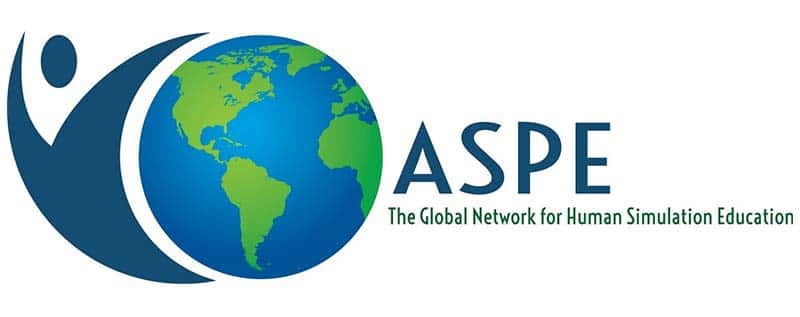
The Association of Standardized Patient Educators (ASPE) is an international organization dedicated to human simulation.
Published in 2017, the ASPE Standards of Best Practice provide practical – and sometimes aspirational – guidance for educators who are working with Standardized Patients.
The ASPE Standards provide guidance in these five domains:
These domains are informed by the underlying values of safety, quality, professionalism, accountability, and collaboration.
The ASPE Standards are intended to be used in conjunction with INACSL's Healthcare Simulation Standards of Best Practice.
If you're interested in simulation best practices in nursing education, you may want to explore the National Council of State Boards of Nursing (NCSBN) Simulation Guidelines for Prelicensure Nursing Programs. The NCSBN Simulation Guidelines were created to help guide nursing education programs in building evidence-based simulation programs for the undergraduate nursing curriculum.
The Guidelines are also intended to guide nursing regulatory bodies in evaluating the readiness of prelicensure nursing programs in using simulation as a substitute for traditional clinical experience.
The NCSBN Guidelines for programs include having:
Please note that this is not a comprehensive list of existing best practice standards in healthcare simulation, and is not an endorsement of the specific standards we’ve highlighted.
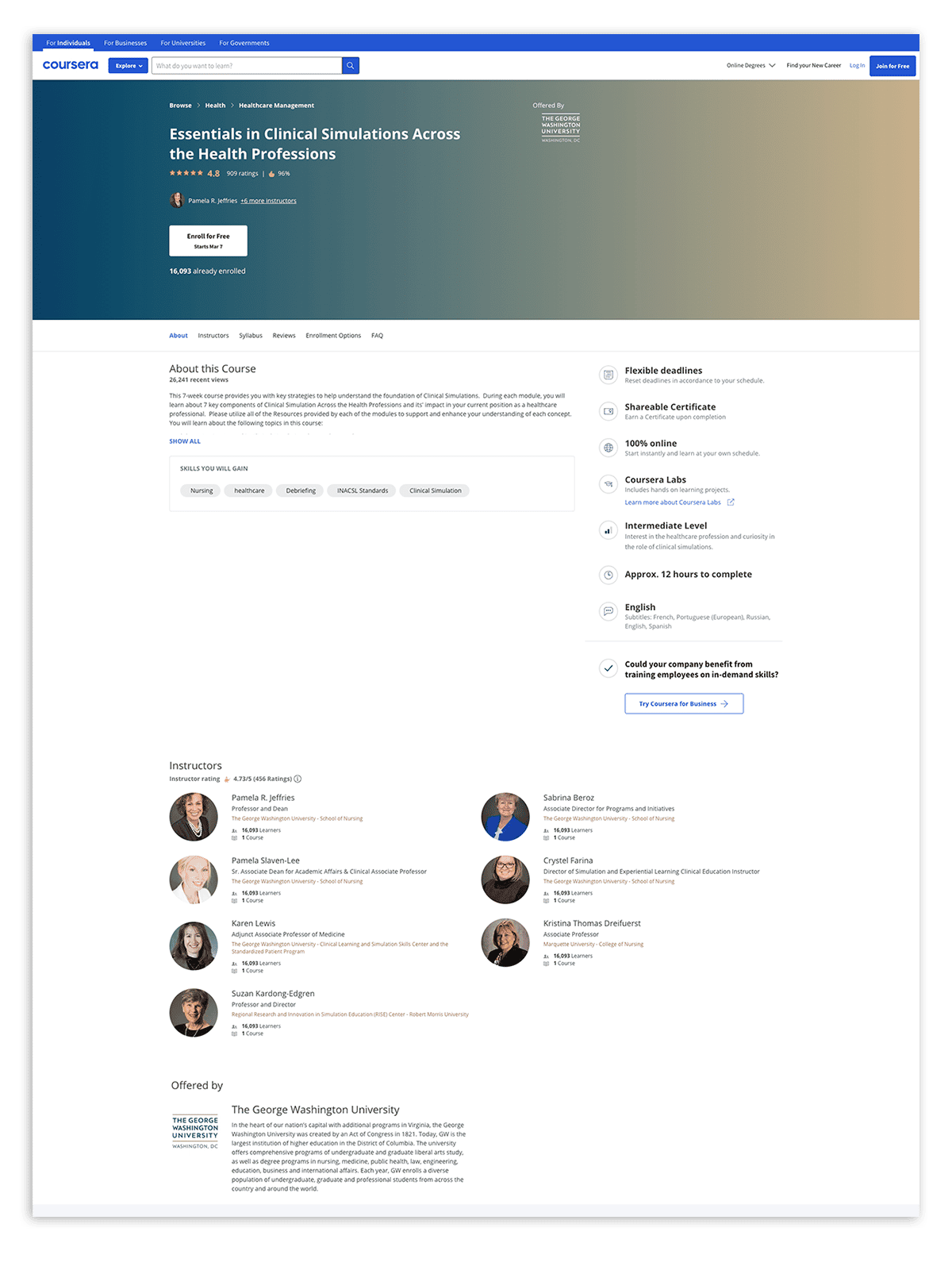
Whether you’re just starting your simulation journey or are experienced but want to make sure you’re well-versed in the essentials, you may be interested in this free online course offered by the George Washington University: Essentials in Clinical Simulations Across the Health Professions.
Learn from simulation experts as they discuss 7 key components of simulation, including best practices, implementing simulation in the curriculum, debriefing, evaluation methods, and more.